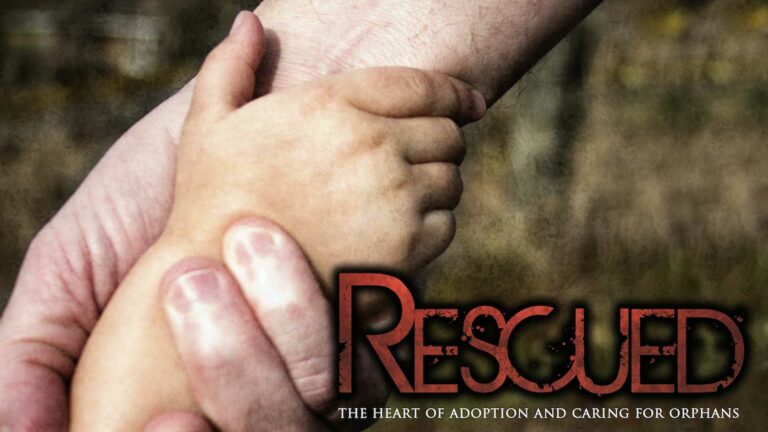Does sport build character? And what does the way you play sports reveal about your character?
****
I recently had the opportunity to substitute teach a high school physical education class. Not knowing a single one of the students, I divided the co-ed class into two random teams for a game of soccer. Within seconds of team creation, I heard moans and groans regarding how the players were divvied up: “This isn’t fair, we’re going to lose!” “Sir, I think you should change these teams because they have Jim AND John on their team!” “We may as well not even play.”
Of all the statements I overheard, that last one really struck me. Participation in the activity was only viewed as worthwhile should losing be avoided. The victimized attitudes of these youth were tangible for the duration of the class, with many of the players from the “losing side” displaying anger and resentment following the game. Garbage cans were kicked, pinnies spiked, locker doors slammed, walls slapped, curse words mumbled. I felt hated; after all, I was the dumb substitute teacher who made unbalanced teams that resulted in a lopsided 4-2 soccer “blowout.”
What sports can foster
There is a widespread assumption that participating in sport is automatically beneficial for kids. After all, they can learn teamwork, cooperation, self-discipline, and perseverance, among many other great positive values. Among Christians, too, sports are promoted as a means of building virtuous character.
However, minimal research evidence exists to validate this belief. On the contrary, sport participation has a proven tendency to promote and develop less desired character traits: selfishness, hostility, greed, jealousy, hatred, violence and alienation.
The truth is, in a sport setting people often act out in ways that would be completely unacceptable in any other setting. Sporting arenas function as special spheres where the rules of life often do not apply. We can see this in the normalcy of violence in Canadian ice hockey participation and fandom.
Whether as active participants or merely spectators of sport, we need to consider whether we shine as a light for the Lord. As a fan, do we thrive on the hockey fights and scraps? Does that get us jumping up and down in our seats? As a participant, is it possible for us to bear the mind and love of Christ while donning a killer instinct? Do we really believe that this aggression towards our opponents reflects Christ-like love?
Cross-checking and chirping at another person would seem like a strange way to express your love towards them. Lacing up to love your enemy seems less frequent than lacing up to squash your enemy. I’m not bashing our own hockey leagues; I know very little about what goes on there – I just know that I saw a 13-year-old boy drag his opponent to the ground in a headlock in order to score a goal on the pitch during a high-school PE class. I know this infiltrates our own turf and our own rinks.
Performance-based worth
In the world of modern sport, personal identity – personal worth – is grounded in performance. In this glorification of the self, losing is equated with insecurity, powerlessness and a sense of “non-being,” which threatens the very purpose of an individual’s life. As the saying goes, you are only as good as your last game.
This value has affected our own sport circles, despite Christians readily preaching that God loves them despite the result of their play. We claim our identity is grounded in Christ, yet, for the sake of upping our game-time performance, we prefer to keep compassion and other-centeredness on the periphery of our competitive lives. Many Christian athletes have a tendency to compartmentalize their faith and exclude it from competitive sport, and are more willing to compromise their faith than withdraw from activity. There is a valid concern that our children are more interested in becoming like Crosby than like Christ. Though modeling the behaviors of others can serve as a valuable educational tool, sport, like money, has become an idol for many, leaving me to wonder if we could cast it out of our lives completely, or if our identity, too, has become participation and performance-based, rather than grace-based.
Can Christians compete?
So are sports beyond redemption? Should we just avoid playing in them and watching them?
To answer these questions we need to examine the idea of competition.
Competition is closely tied to participation in sport. Competition is commonly understood as an effort to gain or win something by defeating or establishing superiority over others who are trying to do the same; you are striving to outdo someone, to better someone. Competition is based on comparisons: Who is fastest? Who is strongest? Who is best? Of course, competition goes far beyond sport: we see it in the classroom, in the office, in our homes. We are constantly striving to outdo others. Such comparisons can dangerously lead to a loss of perspective, bitterness, jealousy and putting yourself before others.
The problem with this typical view of competition is that pursuing superiority over others (thereby making others inferior) directly collides with the Christian ethic of servanthood, as Paul instructs us in his letter to the Philippians 2: 3-4:
“Do nothing out of selfish ambition or vain conceit. Rather, in humility value others above yourselves, not looking to your own interests but each of you to the interests of the others”.
It doesn’t read that we can do some things out of selfish ambition. Jesus Christ modeled humility for us so that we would embrace it in all facets of our lives. We are called to deny ourselves, humble ourselves and boast in our weaknesses and shortcomings. How is this possible in competitive sport?
A different sort of competition
Competition, by its nature, has been suggested to be inherently immoral because it is selfish, egoistic and means treating others as obstacles to be defeated. But is that what competition has to be?
When we look at the historical origins of the word, we learn competition means “to strive together, to come together, to agree, to coincide.” Note that historically competition echoes cooperation, as it doesn’t mean “to strive against”, but rather “to strive with.”
The emphasis in sport, therefore, ought not to be winning, but a mutually acceptable quest for excellence through challenge. This is important, so let me repeat it: competition need not be about winning. Instead it can be about a mutual quest for excellence through the challenge your opponents present you.
Competition is defensible in sport given this social contract, mutual quest and voluntary engagement. So, a reformed perspective on competition would be to understand it as a collaborative, mutual striving together towards something excellent, where opponents honor their opposition and cooperate to bring out the very best in one another, as when iron sharpens iron (Philippians 2:3-4; Proverbs 27:17).
Some Christians have tried to recast competition and eliminate some of the negatives by talking of it as being primarily about competing with oneself. But this ignores the relational essence of competition, and by removing the interpersonal dimension, it is no longer competition at all. We are relational beings, and the Christian competitor is not only striving for personal excellence and realizing individual potential, but also the potential of their opponent. The hindrances we face in competition, the opposition, are not objects and barriers to be overcome – they are people. The experience is indeed a celebrative experience, and we should be able to experience that shared joy with others. Opponents are made in God’s image too. In loving our opponents while we compete, we are putting them before ourselves.
Do you rejoice with your opponents’ accomplishments? If Jesus was your teammate, how would you cooperate with him? More, if Jesus was your opponent, how would you act towards him?
If triumphing over opponents was the sole purpose of contests, competition would be incomplete and a “winning-at-all-costs” mentality, including cheating, would be both justified and necessary. On the contrary, joyful experiences, the desire and striving for excellence, the concern for achieving competitive balance, fun and enjoyment, all function as goals that transcend the zero-sum experience of beating opponents. The pursuit of fun is improved with the avoidance of alienation and violence.
Many of the problems seen in our sport and play are not necessarily intrinsic to sport itself, but rather find roots in our own sinful human nature and an unhealthy obsession with winning. As emotions, enthusiasm and passions are invested so as to create more competitive fun, circumstances all too often and easily dissolve into undesired outcomes. Sport alienates people because it too easily disintegrates into self-serving and self-seeking actions. It is this possibility that players risk when they participate in competitive sport and play, and need to be on guard against.
Sport vs. play
When you strip away the rules and organized structure of sport, you are left with an inherently playful activity. When people are engaged in sport, they are described as “playing.” Play doesn’t serve a utilitarian end – children engage in play not because it will get them something; they play simply to play. In sport, the joy of play has been replaced by a need to win, and an over-emphasis on winning costs us the playful and joyful elements of sporting activities. Currently, sport is not being played – it is being consumed. The current model of sport is business-oriented, and the inherent playfulness within sport has been lost, which is why many Christian scholars are calling for a rejuvenation and recovering of that play-ethic. A win-at-all-costs philosophy is a glaring distortion of God’s desired purpose for our play.
There is irony in sport organizations that claim, “It is not about winning or losing, but about having fun.” The irony is that we actually have to state this as a mandate! If we have to deliberately instruct participants to express something other than the natural impulses stirred in the game, it is a pretty sure sign that something is wrong with both the game and the people participating. Of course, this is no surprise given out flawed human nature; yet this all the more emphasizes how we structure our games and what we teach our youth.
Such mandates are noble intentions, but are often poorly executed; change doesn’t happen with a declaration. If this is indeed the primary purpose of your sport organization, would it make sense, then, to actually keep score? What purpose does it serve? You’ll say, “but kids will keep score anyway.” Absolutely – our me-culture is teaching them that this is important and is the “goal of sport,” and therefore highlights why it is extremely important that you reorient that purpose. Children will lie. And cheat. And disrespect. Participating in sport, regardless of a certain mandate, will not teach them that winning isn’t as important as having fun or being active. You must teach them that.
The odd anomaly in the sport system gets this. The Canadian Soccer Association has recommended eliminating league standings for youth under the age of 12. As of May 2013, B.C. Soccer stopped posting scores and standings from U12 tournaments. Likewise, in a recent U12 tournament hosted by a Surrey soccer club, scores were not kept, no winners and losers announced, no trophies or medals handed out. These approaches encourage broader youth development instead of a “win-at-all-costs” model. Coaches will then equalize playing time, experiment with different positions, encourage “free play,” and children are free to make mistakes without feeling pressure from teammates, coaches, and parents for their shortcomings.
So too, especially in reformed circles, I would expect to see an appropriate rewards system. What do we teach our youth when we reward them with an icecream or a doughnut after they scored the game-winner? What would happen if instead they took that $2 and dropped it in a charity jar? Emphasis ought to be on cooperative play and displaying love and respect to your teammates and opposition. Since the emphasis is on this, winning is not discussed and merely functions as a by-product. So, which do you typically applaud: your child’s respect for and inclusion of others, or your child scoring a goal? What would happen if we counted passes made instead of goals scored? By applauding and celebrating certain behaviors, we teach our kids about what we believe matters most. So, the next time your child walks off the pitch, I urge you to say one of these things: “I love watching you play!” “Let’s go thank your coach!” “Can I get you something to eat?” “That looked like a lot of fun!”
Winning isn’t the problem
To keep things clear: winning isn’t the problem. The issue is why a person wants to win. If you or your child desire first place in order to demonstrate your superiority, or claim supremacy, or to protect your ego, competition will often deteriorate into ethical and moral lapses. Instead, foster a desire to win that translates into great effort, support for others, testing and developing one’s limits and exhibiting the core values of your community. Sports can teach our youth about who’s number one, or who is actually Number One; they can teach children to bend rules, or obey them; and they can teach children that opponents exist to be victimized, or to be loved and respected. On their own, sport and competition will not teach these things naturally. Sports do not educate youth – people do.
True Christian joy can be expressed aesthetically and playfully in thankful celebration to God. Just like “listening” is important in music, and “looking” is important in art, “feeling” is important in sport. As Christian athletes sharpen their skills, the beauty of their artwork (their expressions of creativity and imagination) may be a blessing to themselves and to others. Our bodies are temples of the living God, so we ought to treat them as such – not idolizing them to superior heights, but taking care that we are using them to glorify God. The real challenge will be in whether or not that joy persists even when losing…even when “failing” or performing poorly.
We must set aside personal egos (deny ourselves), accept and acknowledge failure as normal (humble ourselves), and play as if love and respect were verbs.
“If anyone would come after me, he must deny himself and take up his cross and follow me. For whoever loses his life for me will find it. What good will it be for a man if he gains the whole world, yet forfeits his soul?” – Matthew 16:24–26
Legendary basketball Coach John Wooden challenges us all with his words: “I don’t want to tell, based on your actions, whether you outscored your opponent or whether your opponent outscored you.”
Conclusion
After reflecting on how those students reacted towards me after I selected those teams on that glorious sunny afternoon, I realize that I wasn’t hurt by the bitterness expressed towards my decisions, nor was I disappointed that they began to hate me. Mainly, I just felt discouraged. I’ve seen a lot of different behaviors in various sport systems through my young career. I’ve participated in sport since I could hurl a toy across the playroom; I’ve coached sport at pre-school, elementary, high-school, university and national levels; I counsel athletes and performers regularly as part of my job. Sport pays my rent and feeds my family. What discouraged me about this incident was that this was not a public school or a secular sport club; it was our own Reformed Christian School. These were Christians at play. In that moment I recalled Coach Wooden’s sentiment: “Sports do not build character; they reveal it”. So, what are they revealing in you, and those you influence?
This article first appeared in the July/August 2014 issue. If you liked this article you might also be interested in our other sports-related articles: When we understand our opponent isn’t our enemy…., Boys and sports, A Good Coach is Crucial: the potential and danger of school sports teams, Sports teams are important for our Christian schools, and Daughters in sports.
Questions for discussion
1. Children can learn all sorts of lessons from sports.
a) What are some good ones?
b) What are some bad lessons?
2. What can parents do to encourage the former and discourage the latter?
3. Of the four reasons listed below to be involved in sports, which should be given priority in our Christians schools? How might we choose to order these from most important to least important?
a) So that students can learn to be very good at that sport
b) Because sports is a means by which we can teach students other things, such as teamwork, leadership, discipline, compassion etc.
c) To help students stay physically fit
d) For the sheer joy of playing.
4. What are the qualities of a good Christian coach?














